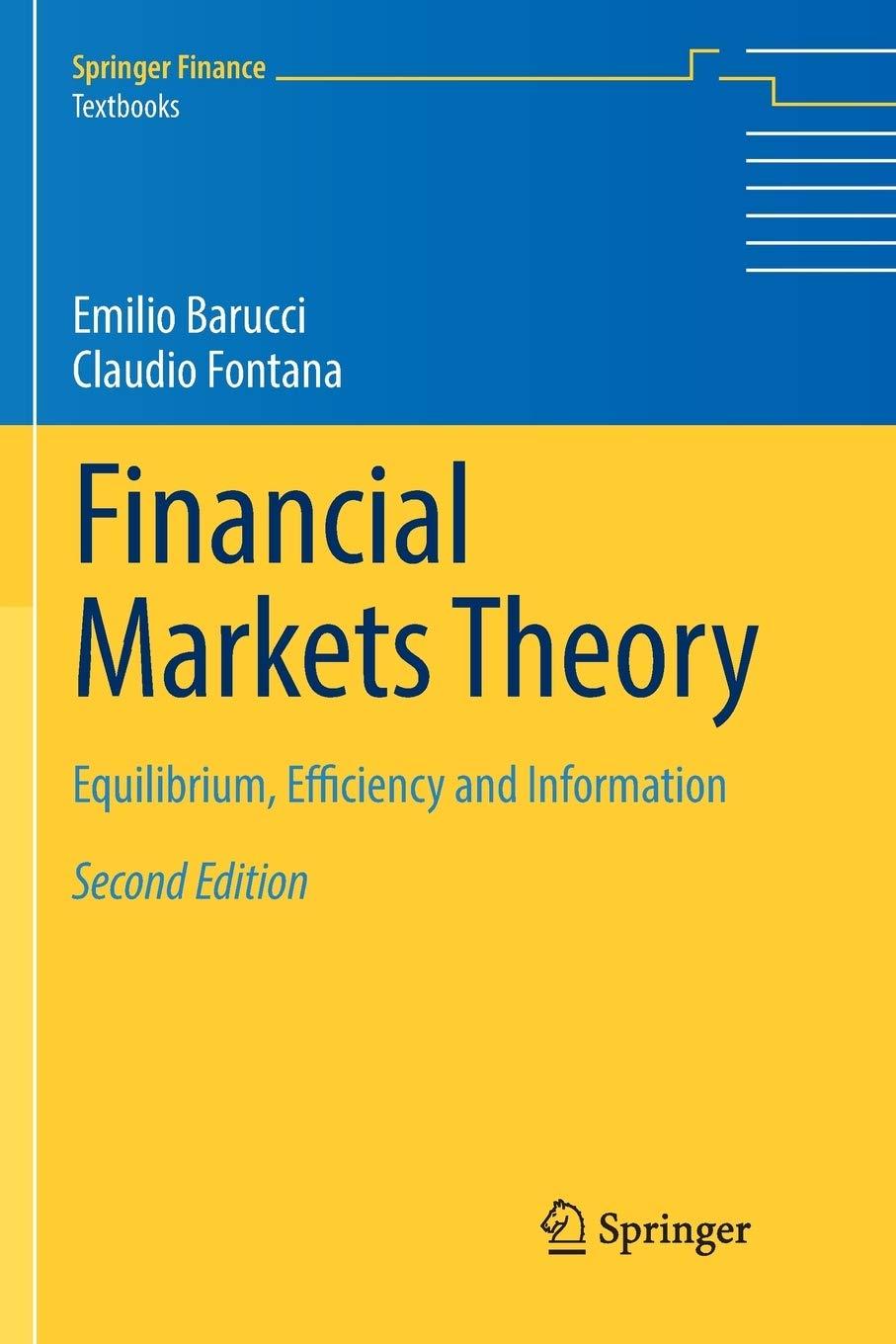As in the first part of Sect. 6.2, consider an economy with (I) agents (with homogeneous beliefs,
Question:
As in the first part of Sect. 6.2, consider an economy with \(I\) agents (with homogeneous beliefs, the same discount factor \(\delta\), time additive and state independent preferences represented by strictly increasing and strictly concave differentiable utility functions \(u^{i}, i=1, \ldots, I\) ) and where all the \(\sum_{t=1}^{T} v_{t}\) Arrow securities are traded. Let \(e=\left\{e_{t}\left(A_{t}\right) ; A_{t} \in \mathscr{F}_{t}, t=0,1, \ldots, T\right\}\) be the aggregate endowment process and \(\left\{c^{i *} ; i=1, \ldots, I\right\}\) a feasible allocation corresponding to an (Arrow-Debreu) equilibrium, in correspondence of the prices \(\left\{q_{0}, q_{A_{t}} ; A_{t} \in \mathscr{F}_{t}, t=\right.\) \(1, \ldots, T\}\) for the Arrow securities. Show that the allocation \(\left\{c^{i *} ; i=1, \ldots, I\right\}\) defines the utility function of a representative agent and that the prices \(\left\{q_{0}, q_{A_{t}} ; A_{t} \in\right.\) \(\left.\mathscr{F}_{t}, t=1, \ldots, T\right\}\) are supported by a no-trade equilibrium in the representative agent economy.
Step by Step Answer:

Financial Markets Theory Equilibrium Efficiency And Information
ISBN: 9781447174042
2nd Edition
Authors: Emilio Barucci, Claudio Fontana





